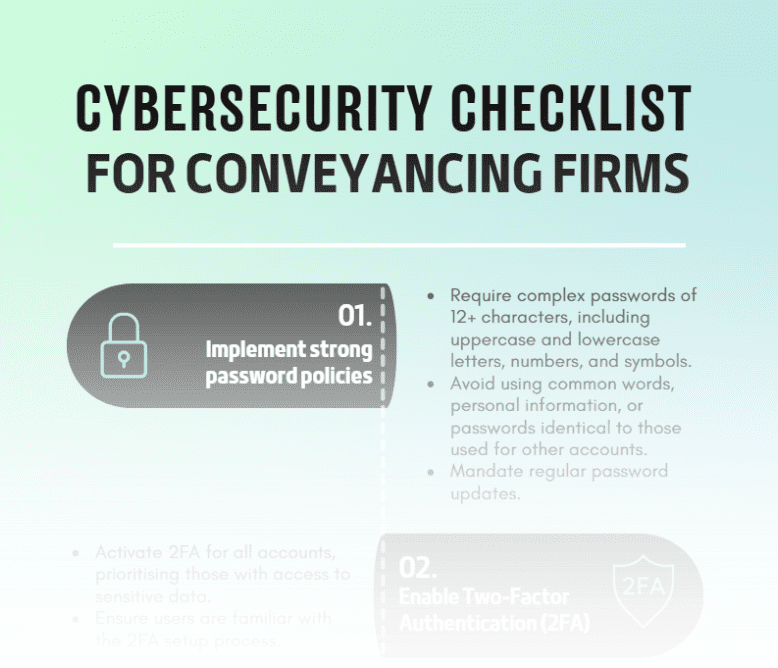Property lawyer Jade MacGregor is already saving two hours a week using AI – after just two months of trialling Archie
In an era where technology is revolutionising every industry, property law is no exception.
AI-powered tools like Archie, integrated into legal practice management software, are becoming invaluable time-savers for lawyers.
For Jade MacGregor, principal lawyer of a regional Victorian law firm, embracing AI has been a game-changer.
Jade, who leads a team of 10, admits she’s not typically tech-savvy.
“I’m usually quite behind the times,” she says.
“I still use pen and paper for appointment notes.”
But Jade recognises the need to keep up with evolving technology as staying ahead of the game is a vital business strategy.
“If you’re not on board, you get left behind,” she explains.
“The way it automates what we do, even drafting the simplest emails or starting a letter or advice, is invaluable.”
Sharing a typical example from her own practice of the time-saving potential for those willing to embrace AI, the Gippsland-based lawyer talks about savings in terms of turning hours into a few minutes.
And tasks that would take minutes are finished in seconds.
Referring to a complex estate matter involving sensitive issues, Jade explained: “There was a lot of back-and-forth correspondence with the other party’s lawyer.
“I had a 2.5-page letter filled with questions and issues, so I put it into Archie and asked it to draft a summary for my client.”
Within 40 seconds, Jade had a summary ready to review—work that would have otherwise taken her 15 minutes to do manually.
“The AI didn’t just save me time, it gave me a solid base to work from,” she says.
“In five minutes, I had something I could refine and send. Without it, the whole process would have taken at least 20 minutes.”
For Jade, AI isn’t about replacing human judgment but enhancing it.
While AI-generated letters or summaries provide a solid foundation, she stresses the importance of oversight.
“You still have to check it. The tone can be flat, and it doesn’t yet grasp the nuances of communicating with different people—whether it’s a friendly conveyancer or someone you’ve never dealt with before.”
Beyond the time saved, AI also helps level the playing field for younger or less experienced staff.
“For junior staff, who might not be as comfortable with legal language, it gives them a strong starting point. They’re not staring at a blank screen wondering how to begin,” she says.
The benefits extend beyond client-facing tasks.
Having recently had to cover for an absent colleague who had been handling a particular file, Jade explains: “I didn’t know much about the case, so I typed into Archie, ‘Provide me a summary of what we’ve sent to the other side,’ and in 40 seconds, I had a breakdown of every document and communication.
“That would have taken me hours otherwise.”
McGregor also sees AI transforming the administrative side of property law.
“We do quite a bit of property work.
“Imagine being able to right-click on a contract, and it auto-populates the purchase price, vendor, settlement dates, and agent details into the system. That’s a 15 to 20-minute job reduced to just a couple of minutes. It’s huge.”
AI is particularly impactful for firms like Jade’s, where many tasks are charged at set fees.
“We can still charge the same fee, but we’re doing the work faster. That means we have more time for things like updating our precedents, doing research, and attending seminars,” she says.
While Jade is enthusiastic about AI’s potential, she acknowledges its limitations, especially with older clients.
“Most of my clientele are between 60 and 80 years old,” she says.
“They like coming into the office, and no AI can greet them at the door or have a personal conversation.”
Jade also highlights the importance of cybersecurity in adopting new technologies and acknowledges that is one of the reasons for having a guard-railed AI function for her practice management.
“We’re a regional firm, so we’re a prime target for cyber-attacks. That’s why I only use Archie within Smokeball, which keeps everything integrated,” she says.
“I wouldn’t trust sending sensitive client information to an external AI program.
“I’d never even used ChatGPT before as I wasn’t comfortable with an open-source system.
Despite some initial resistance—especially among older staff members—Jade is confident that AI is the future of law.
“We’ve got one staff member who’s been in the industry for over 40 years. She was sceptical at first, but once she saw how quickly it worked, she came around.”
For Jade, AI has already saved her between 1.5 and 2 hours per week—a significant amount of time in a busy practice.
“That might not sound like much, but when you’re balancing client meetings and everything else, it adds up,” she says with a smile.
Looking ahead, Jade believes AI will only become more integrated into legal workflows.
“I’m excited about where this is heading. I can see it automating more data entry and maybe even transcribing phone calls and appointments, so we don’t have to spend so much time on file notes.”
But even as AI continues to evolve, Jade is clear that it will never replace the human element of her work.
“It’s a tool, a very useful one, but it’s still just a starting point. At the end of the day, law is about people, and no AI can replace that.”






